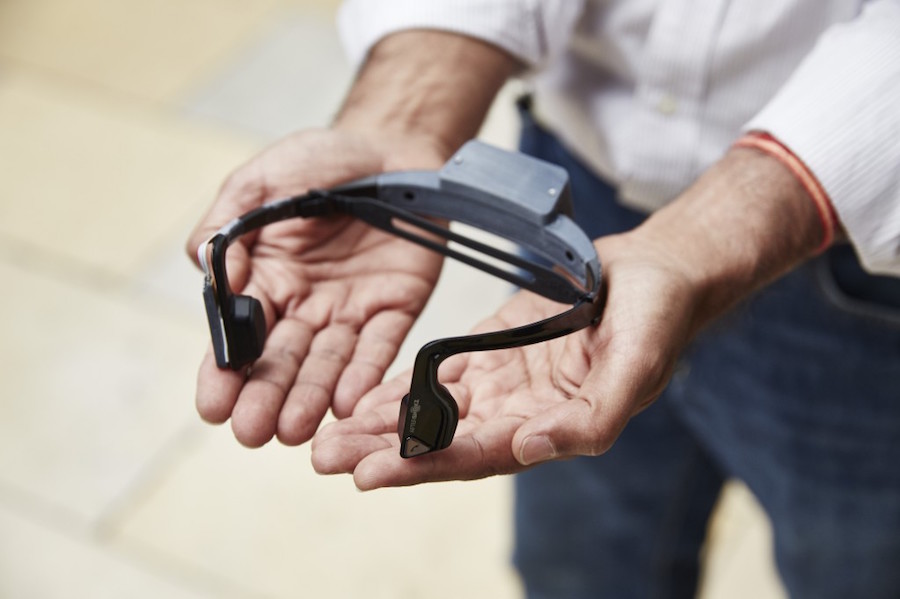An unseen miracle: Cities Unlocked
Earlier this week, the Cities Unlocked research project unveiled a startling new technology that might help visually impaired people navigate cities just as easily as the rest of us. This is a headset that works like Google Maps for the visually impaired. It conducts sound that resonates through the bones of the wearer, constructing what is called a 3D soundscape.
This technology makes the visually impaired completely independent, allowing them access to the world around them.
The technology has been designed by a company called AfterShokz, in collaboration with Guide Dogs, Future Cities Catapult, and Microsoft. The device comes with a Windows phone handset and 3D audio headset, and uses beacons placed around the city to give the wearer an accurate picture of the environment around her. When the software was tested by BBC technology correspondent Rory Cellan-Jones, surrounding beacons gave him information about the environment, reporting “parked cars and overhanging trees ahead.”
The headset is the latest version of a device already out on the market. This one conducts sound through the jawbone so as not to hinder the natural input of surrounding sound such as traffic for the wearer. This device generates a series of clicks and pings to ensure wearers that they are on the right track—something that can boost the confidence for any unsure city traveller. As Cellan-Jones said, for him, it was just about reducing the uncertainty of taking a walk down the streets in a blindfold, however, for the testers who are actually visually impaired, “it seems to have increased their confidence in taking new routes up to a new level.”
So far, there have only been eight tests carried out by visually impaired people. The feedback has been fairly positive, with five of the eight testifying that they feel more assured while wearing the headset. Kirstie Girce, one of the trialists, said, “We want to live like normal people… we want to just be able to jump on a bus and go somewhere and have that freedom.”
Out of the two million registered as visually impaired in the UK, 180,000 people rarely leave the house. Amos Miller, a UK citizen who is visually impaired, thinks that the technology can help him “enjoy everyday experiences outside of home.”
Cities Unlocked doesn’t plan to stop here. A quick look at the website reveals other ways they plan to open up the UK to those who are visually impaired. The possibilities include Adventure Walks, which are multi-sensory experiences around the city for the visually impaired and their families. Several noteworthy technologies include scent trails for those with guide dogs around the city and sensory maps, adding a new layer of technology to the city to make it more accessible.
As Jenny Cook, head of strategy and research at Guide Dogs says, “People living with sight loss face a multitude of challenges every day that can prevent them from getting where they want to be in life… the thought of an unfamiliar journey leaves them stressed and anxious and visiting a new area is an impossible dream.”
Sources: BBC, The Inquirer, Cities Unlocked.org

This is Anoushka’s second and final year in The Talon. She still does not know how to write a biography and would probably ‘google’ it if she knew...










